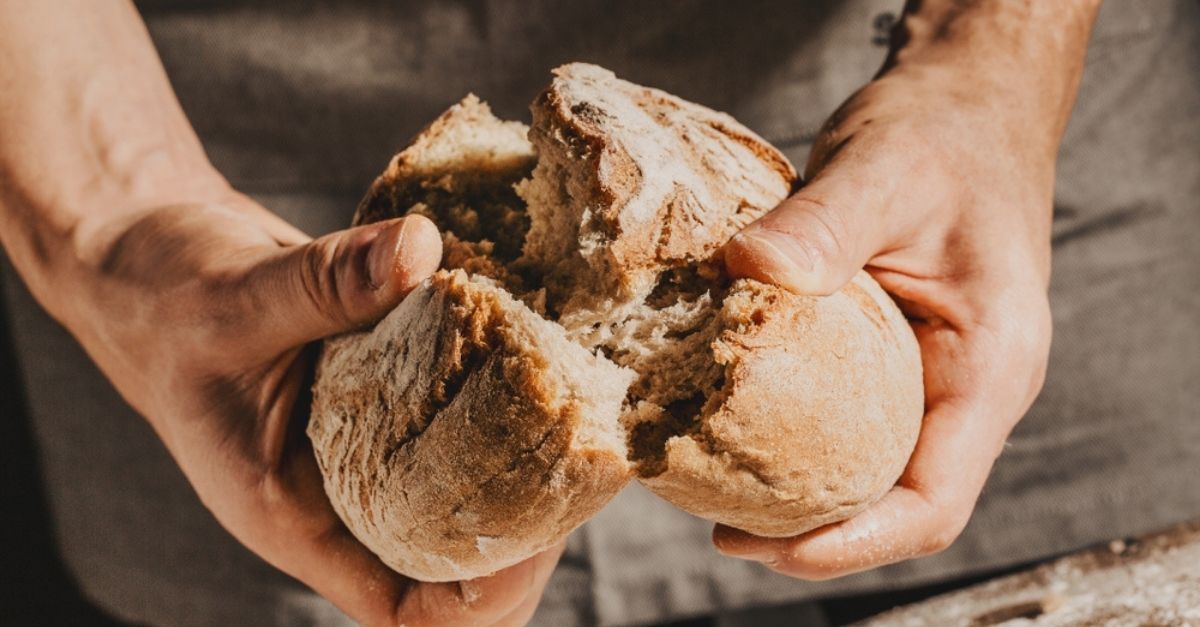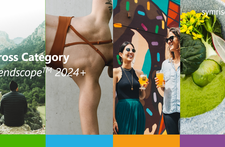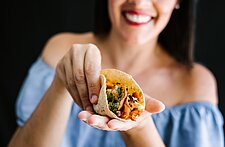As consumers around the world turn to healthy, natural food, that doesn’t mean that they’re depriving themselves of indulgences. People still want to treat themselves and dive into delicious food and beverages, that just looks a little different than it may have in the past. Nowadays, consumers want premium products that taste good while also being good for their health, the environment, and society as a whole.
Plus, consumers want to indulge in more experiences, where there can an entertaining aspect to eating and drinking, beyond just the taste. Technology can play a key role too by creating more unique, personalized experiences for consumers to indulge in.
Specifically, as Symrise’s Global trendscope 2021+ report finds, consumers globally are embracing the following trends inspired by premium indulgence:
Conscious Hedonism
Indulgence doesn’t have to mean feeding whatever cravings someone has, no matter the consequences. Instead, consumers today are practicing a more conscious form of hedonism. If they’re going to indulge, they want to feel good about doing so in ways that align with their overall values.
One representation of this trend comes in the form of pairing craftmanship with ethics. A high-end product can be made with respect for nature and humanity. That’s giving some upstart boutique brands an advantage, especially when they can appeal to younger consumers looking to purchase from companies that are built on a foundation of environmental and social good.
Relatedly, conscious hedonism also means that consumers are choosing luxury brands that achieve this high-end status through quality production processes, rather than just glitzy marketing.
Brightland, an oil and vinegar company in California, represents this conscious hedonism trend. The brand has elevated itself to luxury status through artfully designed packaging while also backing it up with high-quality, transparent processes.
As the brand notes on its website, “With Brightland, you know exactly what you’re getting - authentic olive oils and vinegars that are never rotten, overprocessed, or fraudulent. With absolutely no fillers or artificial preservatives.”
Immersive Experiences
Premium indulgence can also revolve around the experiences tied to eating and drinking, rather than being limited to the taste of the items themselves.
Gen Z and Millennial consumers are particularly driving this trend, such as by seeking out photogenic restaurants, bars and related establishments. In fact, 53% of Millennials say that a “new experience” is an important factor in choosing where to eat, finds law firm CMS.
Many dining and drinking establishments have responded, such as by focusing on aesthetics to become more relevant in the age of social media. In general, though, CPG brands still have a ways to go to fill this demand for immersive experiences.
One example of this trend playing out can be seen at the new version of Alchemist in Copenhagen. Over the course of 4-6 hours, diners embark on a theatrical journey, as they literally move through different rooms throughout the meal.
“In the previous incarnation of Alchemist, like the vast majority of high-end restaurants, the experience was focused almost entirely on the food, a noble aim in itself,” explains Mike Duncalf, the founder of the design studio behind the new restaurant, as told to the publication Dezeen. However, he adds, for Alchemist 2.0, head chef Rasmus Monk “was looking to enhance the experience by creating an extraordinary physical environment which includes visual and audio stimulation.”
Youniverse
This third trend inspired by premium indulgence is still in its early stages, but there’s huge potential for greater personalization in food and beverage. In particular, technology like artificial intelligence (AI) and advanced analytics can be used such as to customize meal plans and suggest recipes. As such, this indulgence trend ties into consumers’ desire for healthy lifestyles.
Moreover, this trend goes beyond past personalization efforts, like suggesting products based on prior purchases. Instead, there’s the potential to add real value to consumers by providing insights that they might not have ever realized without technology.
For example, Mintel predicts “that at-home DNA testing kits will become mainstream for personalized health solutions by 2025.” That could then open up opportunities to customize food and beverage choices based on individuals’ unique health needs.
Technology is also in use within apps like Chefling to personalize meals based on dietary preferences and the ingredients a consumer has on hand. As Chefling describes for its vision, “We want to put a smart, personal kitchen assistant in the pocket of every home cook. It will get to know what you like to eat, how you like to shop, and how it can make your home and kitchen life more comfortable.”
________________________________________
Going forward, brands that can appeal to consumers’ desire for luxurious yet ethical, experiential and personalized food and beverage options will win more market share. The new indulgence incorporates health/wellness and a desire for natural products and processes. At the same time, consumers are looking beyond just taste and want to be able to enjoy the aesthetics related to eating and drinking. And increasingly, technology will play a role to give consumers the premium experience of customization.






